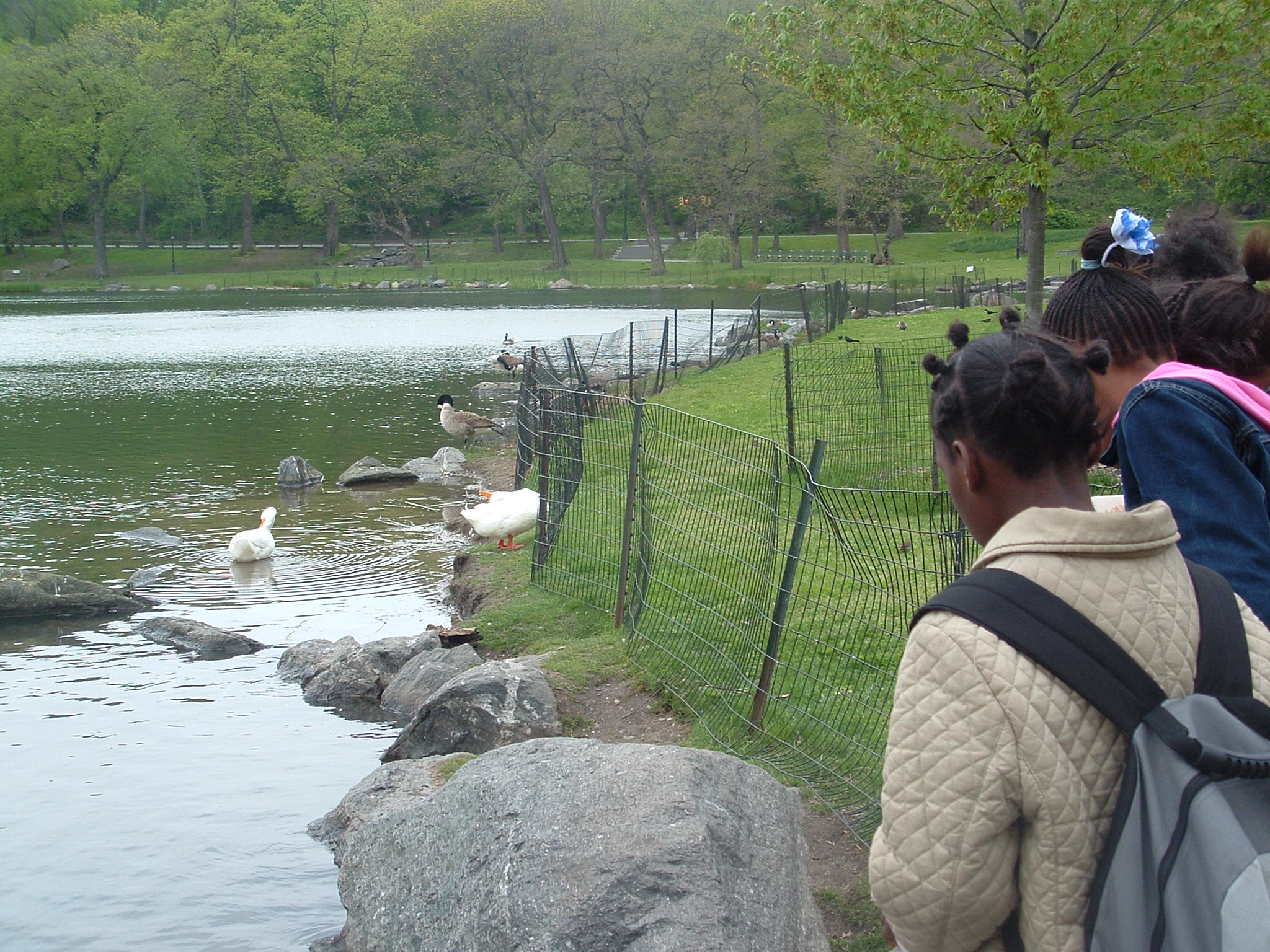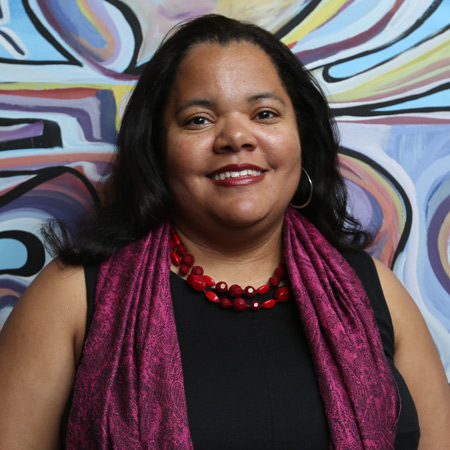Institute for Urban and Minority Education

The Challenge
Educational opportunity for children and youth of color, particularly in urban areas, has been marked by inequities, leading to gaps in educational attainment and achievement. These discrepancies also reflect a limited knowledge base about the strengths and needs of students, neighborhoods and communities, which, too often, results in the marginalization of their knowledge and perspectives in education research.
The Charge
The Institute for Urban and Minority Education (IUME) seeks to disrupt the deficit-oriented frameworks of educational inequities and improve the life chances of underserved populations in urban areas. IUME researchers, faculty, staff and graduate students are committed to improving education for children and youth by better understanding their educational, psychological and social development, as well as the experiences in their homes, neighborhoods, communities and society that enhance opportunities for development and social mobility. IUME was founded in 1973 by TC psychologist Edmund W. Gordon (now Richard March Hoe Professor Emeritus of Psychology & Education) and is now directed by Erica N. Walker, Clifford Brewster Upton Professor of Mathematical Education.
In a Nutshell

IUME was one of the very first university initiatives of its kind to address issues in urban education and advocate for underserved people. That focus, created by Dr. Gordon, was an important innovation and is such a central part of Teachers College. We want to carry it forward into the 21ˢᵗ century — especially in the current political climate. How we see cities as landscapes for learning and as contested sites of democracy and power is central to educational questions today.
The Approach:
With deep roots and strong connections to Harlem, IUME has used interdisciplinary research, advocacy, demonstration, evaluation, information dissemination and technical assistance for more than 40 years in order to study and improve the quality of life and life chances of communities of color through education in urban contexts in New York City and beyond.
Past Achievements:
- For 30 years, IUME ran the federally-funded ERIC Clearinghouse on Urban Education, establishing itself as a respected source of research knowledge in the area of urban and minority education. In doing so, IUME helped develop the field of urban education by providing direct information services to parents, community members and education professionals. Over the years, IUME has continued its mission to conduct research on key issues and disseminate results through training, workshops and other initiatives for students, parents, teachers, administrators and other community members.
- More recently, IUME and its affiliated faculty have focused their work on education and well-being, within and beyond schools. Their areas of engaged research include youth participatory action research, social and racial justice curriculum development; civic participation; literacy/ies in and across multiple domains, and professional development for teachers and school leaders in a variety of content areas. Affiliated faculty and their research represent the fields of psychology, literacy, STEM (science, technology, engineering, and mathematics), history, policy and health.
Current Focus:
IUME's research projects and initiatives demonstrate a commitment to broadening discourse and dialogue about key educational issues, centering the lives of urban children and youth, and deepening connections to communities to inform theory and develop transformative research and practice. Some current projects include:
- Bridging Communities with Student STEM Stories: Culturally-Responsive Strategies for Motivating STEM Engagement in Diversifying Public Schools. This three-year project, led by Professors Amy Stuart Wells and Erica Walker, is funded by the National Science Foundation. It seeks to motivate students to pursue careers in STEM fields by demonstrating the myriad ways science, technology, engineering and mathematics intersect with their lives and communities.
- Cyphers for Justice, a 15-week program founded by IUME alumnae and Senior Research Fellows Jamila Lyiscott (Ph.D. ’15) and Limarys Caraballo (Ed.D. ’12), uses hip-hop, digital literacy and the spoken word to introduce New York City high school students, teachers and young people identified as juvenile offenders to critical research.
- The Harlem Education History Project, led by Professor Ansley Erickson, connects scholars and the community as a whole to the struggles and triumphs that marked 20th-century learning in the neighborhood at TC’s doorstep. An offshoot, Youth Historians in Harlem, inspires current students to research the history of their storied neighborhood.
- The Black Education Research Collective (BERC), founded by Professor Sonya Douglass Horsford, is a working group of education research faculty and graduate students and alumni from Teachers College and across the country committed to generating cross-disciplinary research that supports the effective education of black children and youth.
- “Hidden” History: Mathematics, Mathematics Education, and Mathematicians at Historically Black Colleges and Universities is a multidisciplinary project of TC’s programs in History & Education and Mathematics Education and the College’s Media & Social Change Lab (MASCLab). The project’s research focuses on math coursework, curriculum and departmental structure at key historically black colleges and universities, which produce a significant proportion of STEM professionals of color in the United States. Funded by a TC Provost’s Investment Fund grant, the two-phase project will culminate in the development of a digital library of resources for K-12 students, teachers and schools as well as university researchers and STEM departments.
- IUME's partnerships with the National Urban League have included a national convening of activists, authors, scholars, policymakers, researchers, and educators focusing on Indicators of Educational Equity and an NSF-sponsored conference on Human Variance and Assessment for Learning in STEM headed by IUME founder Edmund Gordon.
- “IN Conversation” is a new forum series for cross-constituency dialogue on current topics of interest. Its intention is to facilitate deeper connections for research, practice and policy among various stakeholders at the intersection of the urban experience and education. At its inaugural meet-up, members of the TC community (faculty, staff, and students) as well as teachers, students, creative arts enthusiasts and community members discussed the educational and cultural significance of the 2018 blockbuster Black Panther and its implications for practice and research across a myriad of disciplines.
- Honoring the Legacy of Shirley Chisholm. An April 2020 symposium will introduce a new generation to the activism of the late pioneering black Congresswoman and presidential candidate, a TC alumna. Conceived of by TC master’s candidate Honey Walrond, the event is funded by a TC Vice President’s Grant for Diversity & Community Initiatives.
- An Advanced Placement (AP) pilot seminar on the African Diaspora — developed in significant part at IUME, in partnership with the University of Notre Dame and Tuskegee University — is the first AP course devoted to a part of global history for the most part obscured by the Eurocentric view of the world found in most textbooks. The course, recently featured in Time magazine, is being piloted in 11 schools during the 2019-2020 school year (up from two in 2017-2018). It exemplifies historians’ growing shift in focus away from the same few iconic figures such as Martin Luther King, Jr., and Rosa Parks toward black experiences worldwide.
Alumni in High Places:
- Edmund Adjapong (Ph.D. ’17, M.Ed. ’15, M.A. ’14), Assistant Professor of Education Studies, Seton Hall University; Research Fellow, IUME
- Arshad I. Ali (TC IUME Post Doc 2011-2013), Assistant Professor of Educational Research, Graduate School of Education and Human Development, The George Washington University
- Eleanor Armour-Thomas (Ed.D. ’84), Professor of Educational Psychology, Queens College
- Limarys Caraballo (Ed.D. ’12), Associate Professor of English Education at Queens College; Senior Research Fellow, IUME
- Cynthia Carvajal (M.A. ’15), Project Director, CUNY Initiative on Immigration and Education
- Cati de los Rios (Ph.D. ’17), Assistant Professor, University of California, Davis
- Brennan Dubose (Ph.D. ’18) Senior Associate, Black Male Achievement Fellowship Programs; Research Fellow, IUME
- Barry Goldenberg (Ph.D. ’19, M.A. ’13), Adjunct History Professor, El Camino College; Research Fellow, IUME
- Veronica Holly (M.A. ’01), IUME Assistant Director
- Jamila Lyiscott (Ph.D. ’15), Assistant Professor of Social Justice Education, University of Massachusetts Amherst; Senior Research Fellow, IUME
- Moira Pirsch (Ph.D. ’18), Education Director, Maui Arts & Cultural Center; Coyle Fellow for Literacy Research, University of Notre Dame; Research Fellow, IUME
- David Wall Rice (TC IUME Post Doc 2004-2005), Professor of Psychology, Associate Provost and Director, Institute for Social Justice Inquiry and Praxis, Morehouse College
- Phillip A. Smith (Ph.D. ’19), Program Director, Black Education Research Collective
Funding:
Federal, publicly subsidized, and private foundation grants.
Partnerships:
IUME has numerous partnerships with schools, community groups, non-profits and cultural organizations and collaborates with multiple offices, centers, departments and programs at Teachers College.